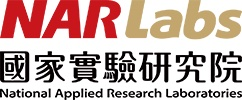TIRI (Taiwan Instrument Research Institute)
Research Field
Chi-Chung Kei received the Ph.D. degree in materials science and engineering in 2011 from the National Tsing Hua University (NTHU), Hsinchu, Taiwan. He is currently a research fellow and division director in Taiwan Instrument Research Institute (TIRI), National Applied Research Laboratories. He started to develop Atomic Layer Deposition (ALD) equipment in 2004, and established the ALD joint Laboratory in 2015, where TIRI can offer various thin film and tool services to the academia and industrial. As the pioneer of ALD research in Taiwan, he conducts the ALD joint laboratory of TIRI, and manages the development of new ALD process and equipment based on industrial and academic applications, such as semiconductor and alternative energy. The ALD joint laboratory he leads is also the only platform in Taiwan to perform alpha or beta site tests of new ALD precursor or process for pursuing production verification in semiconductor foundries.
As the dimensions of semiconductor devices become smaller, atomic layer deposition (ALD) has become more and more important due to requirements of atomic-scale thickness control and coating conformality. The ALD joint Lab of TIRI was established in 2014 due to the strong requirements of new material and process verifications of ALD in the academia and industry applications. Since then, TIRI has become an important research hub in verifying new materials and process of ALD, especially for next-generation device fabrication. More than 10 stand-alone ALD tools and 20 thin film processes are available in the ALD joint Lab for the academia and industry. Furthermore, more than 20 academia partners utilize and participate in the operation of ALD joint Lab for semiconductor, battery and photovoltaic applications. 7 precursor and 3 tool/component suppliers have utilized the platform to verify products for their customers in semiconductor industry.
1. Verifications of novel ALD materials for leading-edge semiconductor devices.
2. ALD reactor designs with different configurations, such as CCP/ICP plasma lid, cross-flow/top-flow/batch type/spatial ALD, in-situ properties characterization (QMS, QCM, and resistivity).
3. Instrumentation of R&D, mass-production and cluster tools.
1. Outstanding Research Award (2009), National Applied Research Laboratories.
2. Outstanding Research Award (2016), National Applied Research Laboratories.
1. 2004-2011, Ph.D. in Materials Science and Engineering, National Tsing Hua University
2. 2000-2002, M.S. in Materials Science and Engineering, National Tsing Hua University
3. 1996-2000, B.S. in Materials Science and Engineering, National Tsing Hua University
